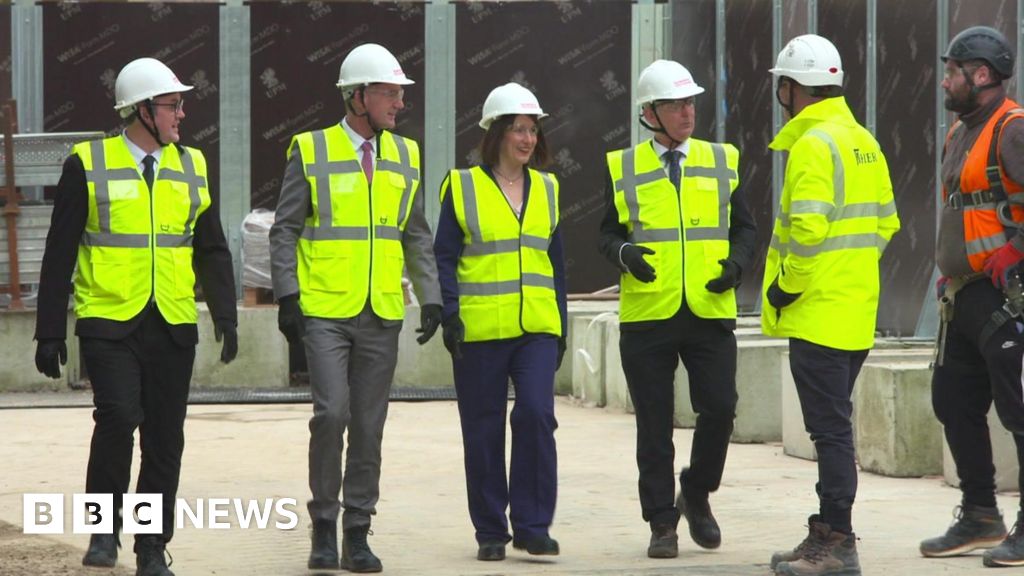Rachel Reeves says government will ‘fight’ for Nissan’s Sunderland jobs

Chancellor Rachel Reeves says the government is “working to protect jobs” at Sunderland’s Nissan plant, amid concerns for its future.
The Japanese car manufacturer recently announced it would be axing 9,000 jobs worldwide, but it is not known how that may affect its operation on Wearside.
On a visit to Sunderland, Reeves said the government was “not just letting things take their course” and would “fight to keep all the jobs here in Britain”.
Nissan has been approached for comment.
In November, Nissan said it needed to create “a leaner, more resilient business” with plans to reduce production by 20%.
It has also been lobbying ministers to change regulations, which mean at least 22% of new vehicles sold by each manufacturer in the UK this year must be zero-emission, rising to 80% by 2030.
Reeves told the Local Democracy Reporting Service she did not want to make it “harder” to build cars in the UK.
“We inherited those targets from the previous government,” she said.
“We have launched that review to make sure that it is fair, particularly fair for British car manufacturers including Nissan.”
Michael Mordey, the Labour leader of Sunderland City Council, described Nissan as “a driver for the economy”.
“The Sunderland plant is one of Nisssan’s most productive, so I am confident that the support will be there,” he said.
On her visit to the region, Reeves also pledged to reduce the gap between the wealth of the North East and the South East.
“We also want to improve inequalities within regions, because parts of the North East are thriving,” she said.
Tees Valley Mayor Ben Houchen, a Conservative peer, said: “The rhetoric is there, I can’t argue with what they are saying.
“But they need to accelerate because they’ve only got five years.”
Related
A top recruiter says sports marketing roles are hot right…
Jobs are opening up in the sports industry as teams expand and money flows into the industry.Excel Search &
Public employees and the private job market: Where will fired…
Fired federal workers are looking at what their futures hold. One question that's come up: Can they find similar salaries and benefits in the private sector?
Mortgage and refinance rates today, March 8, 2025: Rates fall…
After two days of increases, mortgage rates are back down again today. According to Zillow, the average 30-year fixed rate has decreased by four basis points t
U.S. economy adds jobs as federal layoffs and rising unemployment…
Julia Coronado: I think it's too early to say that the U.S. is heading to a recession. Certainly, we have seen the U.S. just continue t










